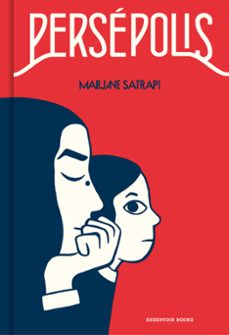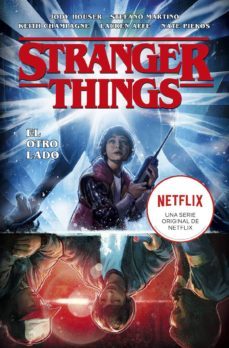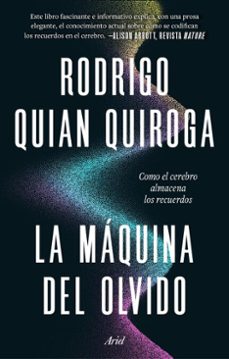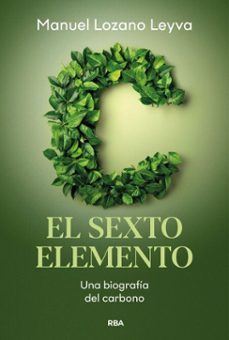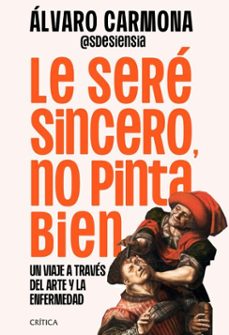Imprescindibles
Ficción
No Ficción
Ciencias y tecnología Biología Ciencias Ciencias naturales Divulgación científica Informática Ingeniería Matemáticas Medicina Salud y dietas Filología Biblioteconomía Estudios filológicos Estudios lingüísticos Estudios literarios Historia y crítica de la Literatura
Humanidades Autoayuda y espiritualidad Ciencias humanas Derecho Economía y Empresa Psicología y Pedagogía Filosofía Sociología Historia Arqueología Biografías Historia de España Historia Universal Historia por países
Infantil
Juvenil
#Jóvenes lectores Narrativa juvenil Clásicos adaptados Libros Wattpad Libros Booktok Libros de influencers Libros de Youtubers Libros Spicy Juveniles Libros LGTBIQ+ Temas sociales Libros ciencia ficción Libros de acción y aventura Cómic y manga juvenil Cómic juvenil Manga Shonen Manga Shojo Autores destacados Jennifer L. Armentrout Eloy Moreno Nerea Llanes Hannah Nicole Maehrer
Libros de fantasía Cozy Fantasy Dark academia Hadas y Fae Romantasy Royal Fantasy Urban Fantasy Vampiros y hombres lobo Otros Misterio y terror Cozy mistery Policiaca Spooky Terror Thriller y suspense Otros
Libros románticos y de amor Dark Romance Clean Romance Cowboy Romance Mafia y amor Romance dramatico Romcom libros Sport Romance Otros Clichés Enemies to Lovers Friends to Lovers Hermanastros Slow Burn Fake Dating Triángulo amoroso
Cómic y manga
Novela gráfica Novela gráfica americana Novela gráfica europea Novela gráfica de otros países Personajes, series y sagas Series y sagas Star Wars Superhéroes Cómics DC Cómics Marvel Cómics otros superhéroes Cómics Valiant
eBooks
Literatura Contemporánea Narrativa fantástica Novela de ciencia ficción Novela de terror Novela histórica Novela negra Novela romántica y erótica Juvenil Más de 13 años Más de 15 años Infantil eBooks infantiles
Humanidades Autoayuda y espiritualidad Ciencias humanas Economía y Empresa Psicología y Pedagogía Filosofía Historia Historia de España Historia Universal Arte Cine Música Historia del arte
Ciencia y tecnología Ciencias naturales Divulgación científica Medicina Salud y dietas Filología Estudios lingüísticos Estudios literarios Historia y crítica de la Literatura Estilo de vida Cocina Guías de viaje Ocio y deportes
Preventa de eBooks de Estudios generales
Te puede interesar
Categorias
Filtros
Del 1 al 6 de 6
Editorial Ariel 9788434440104
Un viaje fascinante por las principales preguntas sobre la memoria, su origen y su funcionamiento guiado por el descubridor de las neuronas de Jennifer Aniston.¿Los animales y los androides tienen recuerdos como los seres humanos? ¿Sus memorias les permiten ser conscientes de su propia existencia? Dados los increibles avances en la Inteligencia Artificial en los ultimos años, ¿seguimos aun siendo mas inteligentes que las computadoras?Rodrigo Quian, uno de los neurocientificos mas reconocidos, repasa los avances mas recientes en el estudio de esta facultad que nos define como especie, explora los interrogantes que faltan por responder y, estableciendo paralelos con el arte, la filosofia, la educacion y hasta el futbol, traza un recorrido que se remonta desde la antigua Grecia y llega hasta los laboratorios de la actualidad.
Ver más
eBook
RBA Libros 9791370310974
EL CARBONO: NUESTRO LAZO CON LAS ESTRELLASDel carbón que impulsó la Revolución Industrial al grafito que traza nuestros primeros dibujos, del diamante que deslumbra en las profundidades de la Tierra al ADN que nos da vida: el carbono es el protagonista silencioso de nuestra existencia. Este elemento, forjado en el corazon de estrellas moribundas hace miles de millones de años, emprendio un viaje vertiginoso por el cosmos hasta convertirse en el arquitecto de la vida. Su historia es nuestra historia. El carbono conecta el polvo cosmico con la conciencia humana, el Big Bang con cada latido de nuestro corazon.Manuel Lozano Leyva ha escrito un tributo al carbon que alimento civilizaciones; una biografia del carbono que nos construyo como especie. Sus paginas responden a las tres preguntas esenciales: de donde venimos, por que existimos y que sera de nosotros mas alla de la vida.Un homenaje al elemento que construyo nuestro mundo y que nos constituyo como especie: ciencia, historia y poesia unidas en una apasionante narracion.
Ver más
eBook
Editorial Crítica 9788491998310
Álvaro Carmona entrelaza medicina y arte para desvelar las historias de las patologías representadas en las obras maestras.Los cuadros pueden esconder una dolencia, un síntoma o una vida atravesada por la fragilidad del cuerpo si sabes donde mirar. Alvaro Carmona nos guia a traves de las grandes obras maestras y las convierte en consultas a destiempo, donde cada pincelada nos permite hacer una autopsia del pasado bajo la tenue luz del museo. El resultado es un viaje fascinante y provocador por la historia del arte desde una optica medica, donde el cuerpo y la enfermedad marcan la creacion artistica.Por estas paginas desfilan reyes con desordenes geneticos, artistas que plasmaron su realidad con artritis y rabia, pintores que se volvieron oscuros cuando perdieron la cordura, mujeres que cuidaron a enfermos mientras el mundo miraba hacia otro lado, santos en pleno brote mistico o martires con sintomas que hoy reconoceriamos en urgencias. Estos casos nos muestran como la patologia se convierte en narrativa visual, como los artistas han sido testigos y a veces pacientes de su propio deterioro fisico o mental y como la historia de la medicina puede hallarse en un gesto congelado por la pintura.Con el humor acido de quien ha pasado demasiado tiempo entre laboratorios, enfermos y lienzos, Alvaro Carmona disecciona la historia del arte con bisturi clinico, rigor cientifico y mucha ironia, y nos invita a mirar mas alla de lo estetico, alli donde las imagenes cuentan verdades biologicas, sociales y emocionales. Porque, a veces, la quietud de un museo alberga secretos que jamas imaginarias.
Ver más
eBook
DEBATE 9791387600433
Desde los clásicos trileros hasta los estafadores de criptomonedas, esta es la apasionante historia de los charlatanes y de por qué caemos una y otra vez en sus trampas.Durante siglos, los charlatanes han vivido de engañar a sus victimas. Hoy, la charlataneria es mas global y lucrativa que nunca. Gracias al poder de la tecnologia, los embaucadores de nuestra epoca han tejido una red de fraudes a una escala sin precedentes.En Charlatanes, el escritor y columnista especializado en asuntos internacionales Moises Naim y el periodista y politologo Quico Toro investigan como los nuevos timadores nos engañan con las mismas tecnicas que se utilizaban en el lejano Oeste: se ganan nuestra confianza, nos hacen creer que son los mayores valedores de nuestros sueños y luego nos explotan para su propio beneficio. En cierto modo, nada ha cambiado excepto una cosa: estos charlatanes son ahora digitales, virales y globales. Sean tanto gurus de la salud que promueven sus productos pseudocientificos como politicos que ocupan los puestos de mayor relevancia del escenario global, los timadores modernos acumulan audiencias de una punta a otra del planeta gracias a internet y las redes sociales, sirviendose de un conjunto de estrategias comunes y actuando con suma rapidez, mientras nuestras lentas instituciones luchan por responder.Repleto de ideas sobre como no caer en todo tipo de estafas ni en la charlataneria populista, este libro es un viaje revelador a traves del engaño descarado y la brutal victimizacion que se encuentran en el corazon de esta nueva lacra mundial.La critica ha dicho:El mundo siempre ha estado lleno de estafadores y timadores. Pero, ¿alguna vez te has preguntado por que somos tan vulnerables a sus trucos? ¿Y por que parecemos particularmente susceptibles a ellos en nuestros dias? Moises Naim y Quico Toro han escrito un libro fascinante que narra la historia, nos da explicaciones e incluso ofrece algunas ideas sobre que hacer con estos charlatanes. Fareed Zakaria Vivimos en una era de mentirosos, farsantes, timadores y charlatanes. Moises Naim y Quico Toro explican como ha ocurrido esto y lo que significa, con una prosa elocuente, urgente. Anne Applebaum Un analisis mordaz sobre los engaños y sobre por que caemos en ellos.Library Journal Los autores demuestran como cualquiera de nosotros puede caer facilmente en la trampa, porque lo que mejor saben hacer los charlatanes es devolvernos el reflejo de nuestros sueños. Frente a un arsenal de tecnologias explotadoras, comprender nuestras vulnerabilidades es el mejor escudo.Kirkus
Ver más
eBook
O'HARE, MICK
Bedford Square Publishers 9781835015728
Discover the Wildest, Weirdest, and Most Wonderful Animals on Earth (and their surprising quirks)!Get ready for a mind-bending adventure through the animal kingdom packed with incredible trivia and jaw-dropping facts that will amaze the whole family.From strange species youve never heard of to the shocking secrets of the animals you thought you knew, this book is bursting with fascinating discoveries that will make you say, "Wait, what?!"Part One: Animals Youve Never Heard OfMeet natures lesser known creatures from the Great Potoo to a type of fish with human looking teeth and an amphibian that freezes solid and thaws out in the spring. These are the curious creatures you didnt even know existed, and every page reveals a completely surprising behaviour!Part Two: Familiar Faces, Unbelievable FactsThink you know pigs, dogs, and penguins? Think again! Discover the weird and wonderful habits of your favourite animals from an everyday garden insect that stretches in the morning (yes like like humans!) to a farmyard animal that plays football. Youll never look at your household pets (or your garden visitors!) the same way again.Perfect for:Curious kids (aged 8+), teens, and adults who love to learnFamilies looking for screen-free funTrivia buffs, fact fans, and anyone who enjoys saying Wow, I didnt know that!So whether youre sharing fun facts at the dinner table, keeping curious minds busy, or dazzling your friends with animal trivia, this is the ultimate fact-filled adventure.Discover the worlds wildest wonders one fascinating fact at a time!
Ver más
eBook
PILCHER, HELEN
Atlantic Books 9781805461456
Illness is not simply a matter of biology. Our thoughts, conscious or otherwise, can make us feel pain or become unwell. If you experienced side effects from your Covid vaccine, the chances are that these were caused by your belief that you would experience them. When a nurse tells you this is going to hurt, it generally does - but perhaps it shouldnt.In this revelatory study, neuroscientist Helen Pilcher explores the hidden impact of the nocebo effect - the placebos evil twin. Medical studies have proven the nocebo effect to cause pain, nausea, paralysis, seizures, and even blindness. The nocebo effect impacts how we grow sick and grow old, explains why people who dont have food allergies have dietary intolerances, and why adults and teenagers are equally susceptible to catching tics through social media. From Havana Syndrome to hex deaths, chronic pain and mystery illnesses, this book explains what happens when illness, psychology and society meet - and shows us what we can do to become less ill and more well.
Ver más
eBook
Del 1 al 6 de 6













